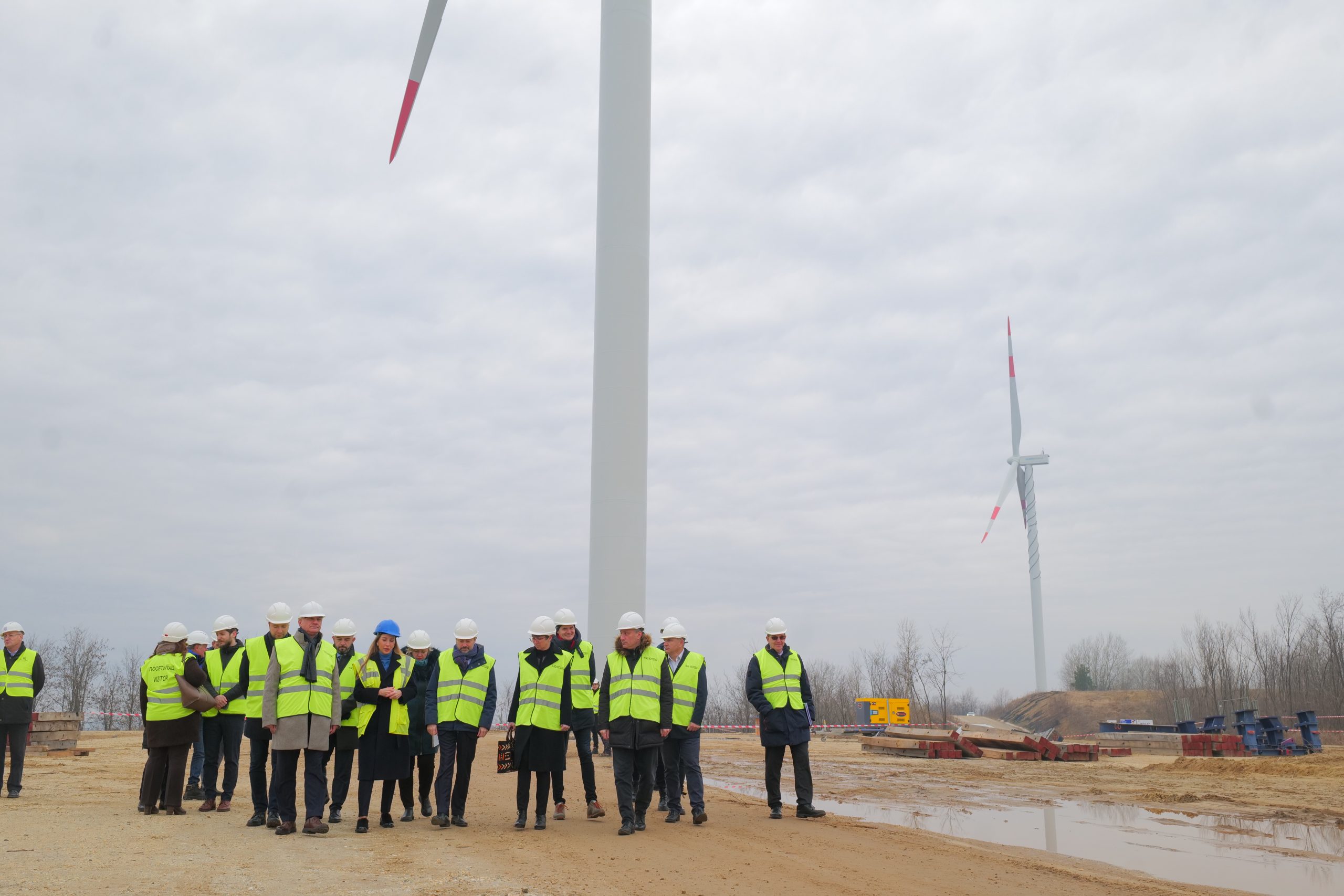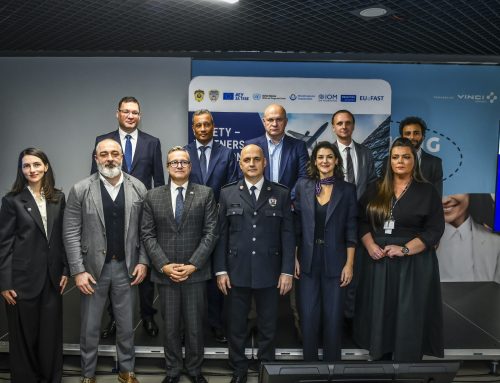Minister of Mining and Energy, Dubravka Đedović Handanović, Ambassadors of the European Union and the Federal Republic of Germany, Emanuel Giaufret and Anke Konrad, have visited today the works on the construction of Kostolac wind farm, the first wind farm of Elektroprivrede Srbije (EPS), which, with a capacity of 66 MW, will further increase the security of electricity supply in Serbia and advance Serbia’s decarbonisation agenda.
Intensive works on the construction of the wind farm which will supply energy to more than 30,000 households are underway, and the works should be completed by the middle of next year.
“Kostolac wind farm, which is being built at full speed today after many challenges, is part of Serbia’s efforts to produce, like other European countries, more clean energy for its citizens and economy and to reduce dependence on fossil fuels. By the end of the decade, almost every second megawatt-hour of electricity will be generated from renewable energy sources, which is an indication that we have launched an unstoppable process of energy transition. This was confirmed by the Energy Community which marked Serbia as a leader in the implementation of reforms in this area. We are grateful to the European Union for allocating 30 million euros grant, as well as to Germany for providing favourable loan conditions and a grant through its development bank KfW. Additionally, the old mining landfill becomes, in this way, a place where clean energy will be produced with less impact on the environment”, said Minister Đedović Handanović.
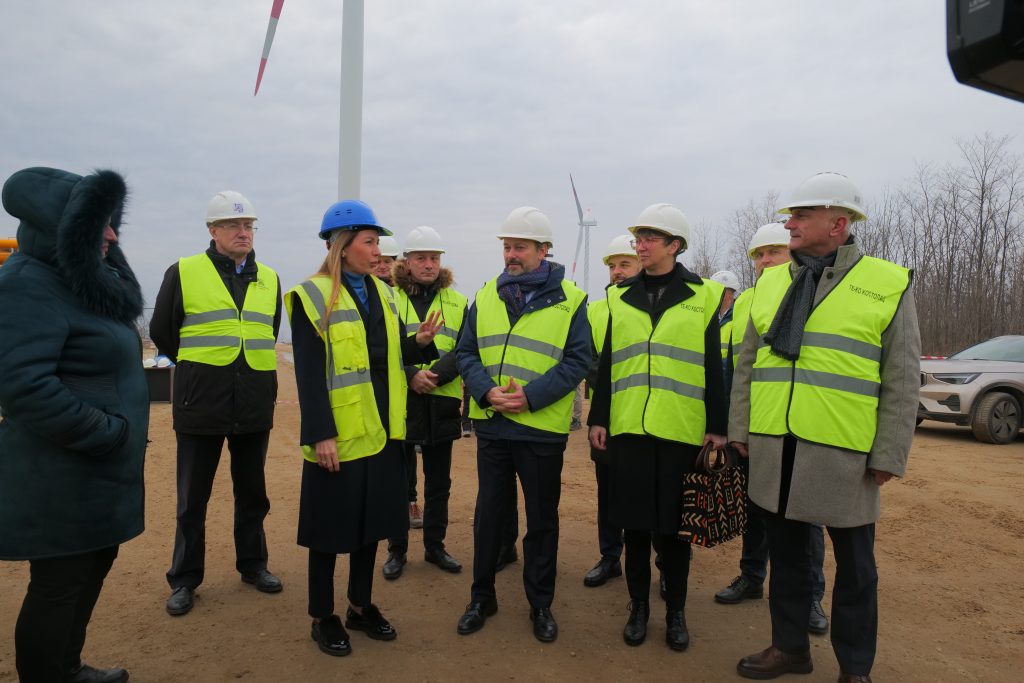
The investment is EUR 144 milion worth and funded by German development cooperation through a KfW Bank loan of EUR 110 million, EU grant of EUR 30 million, while a part of the funds is provided by EPS.
The Ambassador of the European Union, Emanuele Giaufret, stated that Kostolac wind farm is a significant achievement in energy transition of Serbia and a testimony to strong partnership between Serbia and the European Union.
“This project, aligned with the EU Green Agenda for the Western Balkans, represents a concrete step towards decarbonisation and sustainable energy development. By using wind energy, Serbia is not only reducing its dependence on fossil fuels, but also advancing its climate commitments and ensuring a cleaner future for its citizens. The European Union is proud to support the transformation of energy sector of Serbia and it has invested more than EUR one billion in grants since 2000. From improving the energy efficiency to fostering renewable energy projects, we are committed to helping Serbia build a resilient and modern energy system. This partnership, based on the European Green Deal and the Green Agenda for the Western Balkans, shows that sustainable growth and environmental protection can go hand in hand, supporting progress of Serbia towards EU integration and a greener future”, said Giaufret.
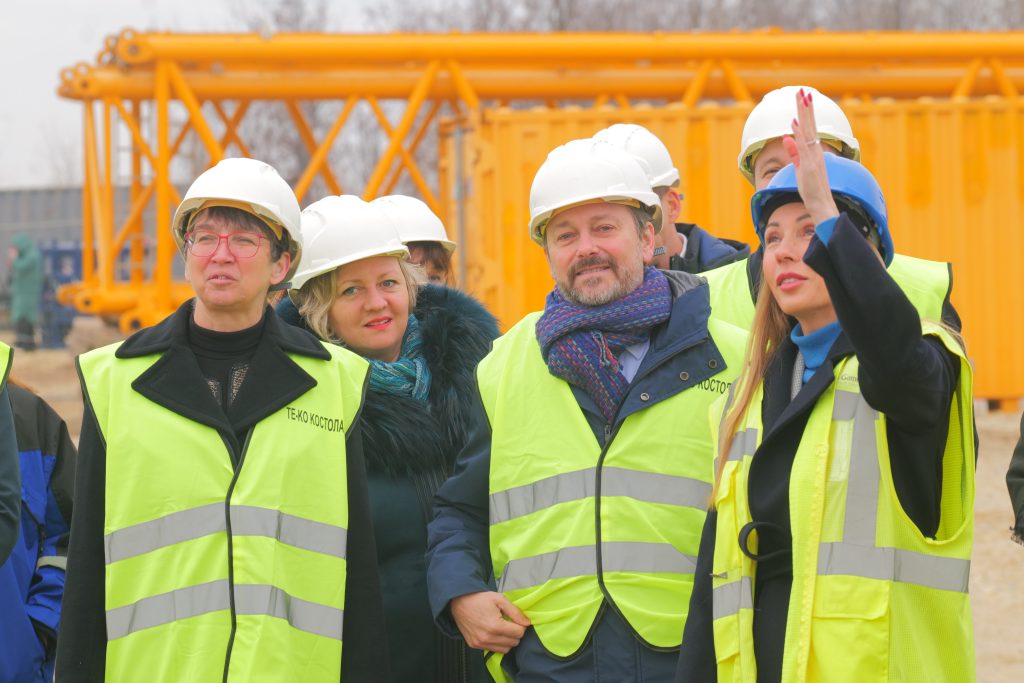
The Ambassador of the Federal Republic of Germany, Anke Konrad, emphasised that Germany is proud to support the construction of the first public wind farm in Serbia as part of the longstanding engagement of German development cooperation for the green energy transition in Serbia since the year 2000.
“Kostolac Wind Farm project – supported by German development cooperation through KfW and EU – is helping Serbia to reduce its dependence on fossil fuels and to achieve its carbon neutrality goals by 2050. I am glad to see the first wind turbine erected and I am looking forward to the completion of the first public wind farm in Serbia”, said Konrad.
Speaking about current progress of the works, the General Manager of EPS JSC, Dušan Živković, said that intensive works were underway at all four locations.
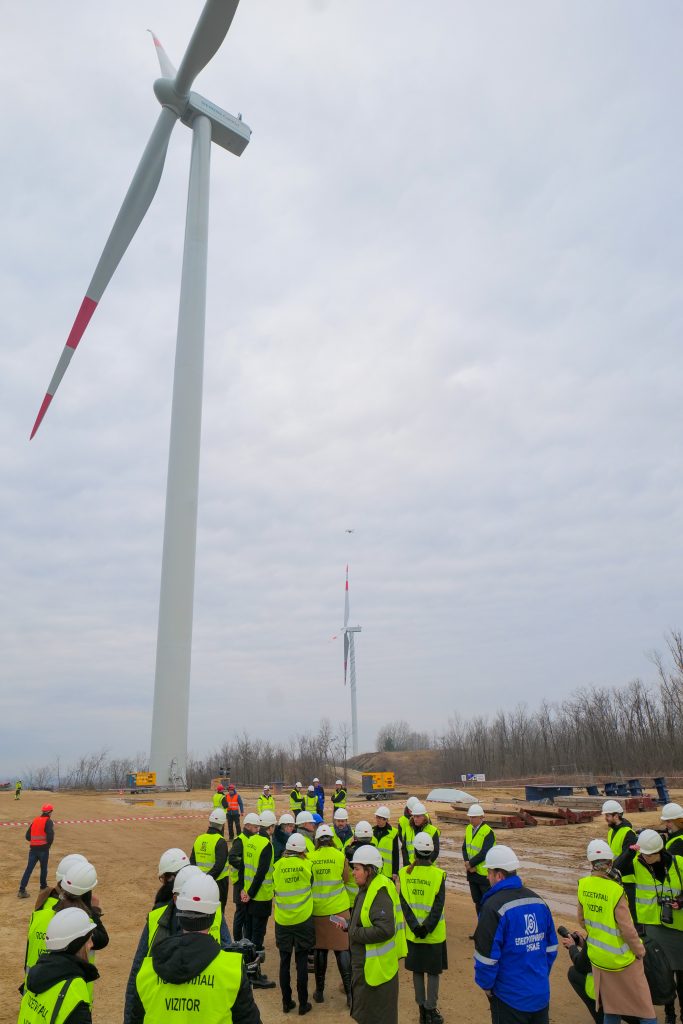
“Fifteen foundations have been concreted so far, wind turbines 7 and 6 have been built, followed by construction of wind turbine 1. Substation, switchgear and internal cable network are being built, and the works are planned to be completed in mid-2025. All building permits have been obtained for the project, as well as all changes to building permits. The wind farm will produce 187 million KWHs per year, which is enough to supply about 30,000 households with green energy,” said Dušan Živković.

